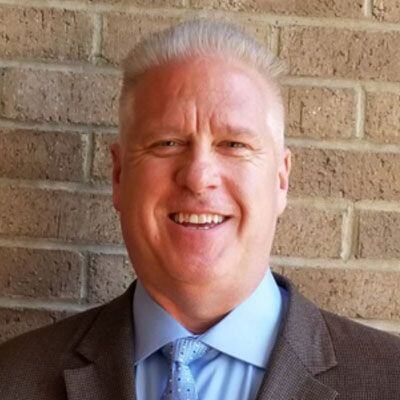Lab RCM: Key Challenges & How to Overcome Them
Why Laboratory Revenue Cycles Are Harder Than Ever
For laboratories, billing and reimbursement have always been complex. But in 2026, the landscape is tougher than ever with payers tightening rules, denials rising, and the costs of managing claims climbing.
Laboratory revenue cycle management (Lab RCM) is no longer just a back-office function; it’s a competitive differentiator. Labs that identify and overcome key RCM challenges can protect margins, reduce cash-flow gaps, and stay ahead in an increasingly data-driven healthcare economy.
Here are the most common Lab RCM challenges and proven strategies to overcome them.
Challenge 1: Payer-Specific Billing Rules
Every payer has different rules for laboratory claims including required modifiers, medical necessity documentation, and test bundling logic. Keeping track of them manually is nearly impossible.
How to overcome it:
- Use an AI-driven rules engine that automatically applies payer-specific edits.
- Maintain updated fee schedules tied to the Clinical Laboratory Fee Schedule (CLFS) and local coverage determinations (LCDs).
- Train billing staff quarterly on policy updates.
🔗 ADS’s Laboratory Billing Solutions guide explains how payer-specific automation improves claim accuracy.
Challenge 2: Missing or Incorrect Patient Information
The smallest data entry error—an incorrect policy number or misspelled name—can lead to claim rejection or denial.
How to overcome it:
- Automate pre-testing or pre-appointment eligibility and demographic verification
- Sync your LIS, EHR, and billing software to eliminate duplicate entry.
- Implement validation rules to flag incomplete data before submission.
Challenge 3: Delayed or Denied Payments
Many labs experience Days in AR exceeding 50 days, largely due to delayed payer responses or repeated denials.
How to overcome it:
- Track denials by payer, code, and reason to spot trends.
- Avoid them proactively with pre-submission alerts on claims likely to be denied.
- Prioritize high-value claims nearing timely filing limits.
- Have real-time claim tracking and use automated follow-up reminders to ensure consistent payer contact.
🔗 Read ADS’s AR Laboratory Billing Services article for strategies to reduce aged claims and speed up cash flow.
Challenge 4: Evolving Compliance Requirements
Laboratories must navigate HIPAA, CLIA, and CMS rules all while managing sensitive patient data. Noncompliance can lead to fines or revenue recoupment.
How to overcome it:
- Ensure your billing systems have role-based access and audit trails.
- Conduct annual compliance training for all billing and coding staff.
- Choose RCM vendors who understand laboratory-specific regulatory frameworks.
Challenge 5: Inconsistent Coding and Documentation
Labs often struggle with documentation gaps, especially for specialized tests like molecular diagnostics or toxicology.
How to overcome it:
- Implement AI-assisted coding tools that crosswalk diagnoses to CPT codes.
- Use structured test-order templates that capture required details.
- Perform quarterly audits to identify recurring documentation gaps.
Challenge 6: Lack of Real-Time Visibility
Without actionable data, labs can’t manage their revenue cycle effectively. Many rely on static monthly reports that provide little insight into daily cash flow.
How to overcome it:
- Use real-time dashboards to track KPIs like Days in AR, denial rate, and collection ratio.
- Monitor payer turnaround times to identify bottlenecks.
- Set automated alerts for unpaid claims approaching beyond what is normal for each of your payers.
🔗 Explore how analytics support RCM improvement in ADS’s Healthcare RCM overview.
Challenge 7: Limited Internal Resources
High staff turnover, manual processes, and limited bandwidth all contribute to RCM inefficiency.
How to overcome it:
- Automate routine workflows (eligibility, scrubbing, payment posting).
- Cross train billing staff to reduce single points of failure.
- Don’t forget about patient responsibility balances and have automated tools for collecting them.
- Consider outsourcing RCM to a specialized laboratory billing partner.
Outsourcing gives your lab access to experienced specialists, scalable support, and advanced technology, all without the cost of in-house overhead.
🔗 Learn more about outsourcing in ADS’s RCM Outsourcing guide.
Strengthen Your Lab’s Financial Core
Laboratory billing will always be complex, but it doesn’t have to be chaotic. By tackling payer-specific rules, automation gaps, patient responsibility balances, and staffing challenges head-on, labs can transform their revenue cycles into efficient, resilient systems.
The key is proactivity: automate, analyze, and continuously refine your workflows. When you take control of Lab RCM, you take control of your profitability.
At ADSRCM, we help laboratories do exactly that, with automation, analytics, and a behind-the-scenes team of financial and workflow specialists. Our mission is to help clients get paid faster, reduce denials, eliminate manual effort, and build financial stability for the future.
The same MedicsPremier platform used by ADSRCM is available if in-laboratory automation is preferred.
🔗 Ready to strengthen your lab’s RCM? Explore our Laboratory Billing Services or schedule a live demo today.
About Jim O'Neill
As the company’s Laboratory Services Business Development Manager, Jim has 30 years’ experience in LIS and financial systems including 20 years as the owner of CSS (Avalon LIS). With a Bachelor’s degree in information technology from Rowan University, Jim has worked / consulted with over 500 labs in the US and internationally in improving their LIS and financial solutions. Jim is genuinely people-oriented and civic-minded; he’s the former Mayor of Northfield NJ and is currently on the town’s council.


